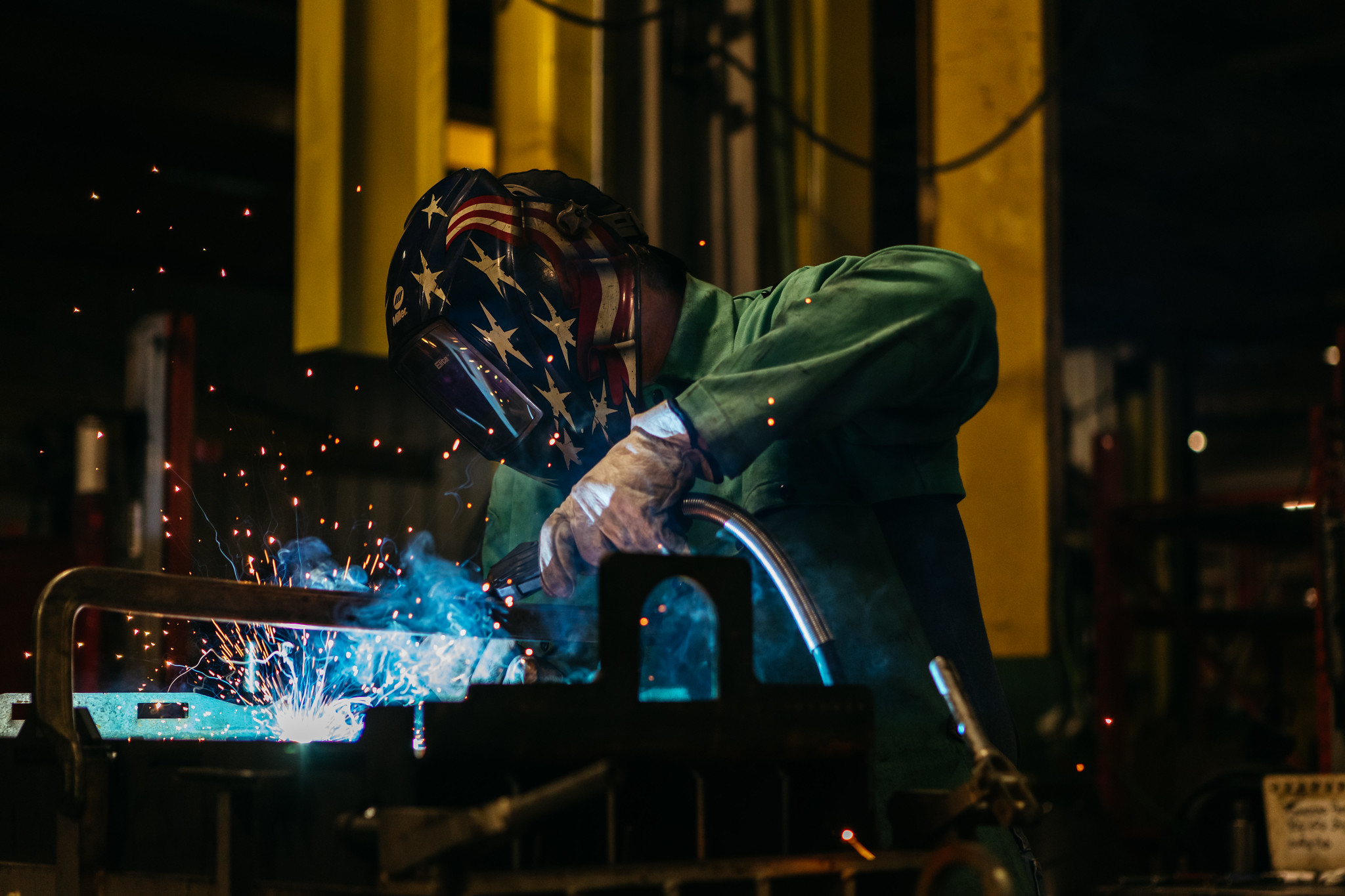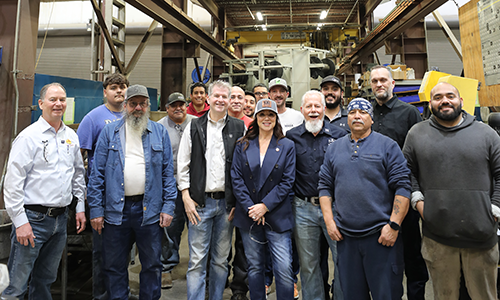AEM, the Nashville Area Chamber of Commerce, and the Brookings Institution’s Metropolitan Policy Program partnered to host business leaders, educators and policymakers in Nashville for discussions on how to build a robust infrastructure workforce in Tennessee and across the country.
The event, titled Building Generational Talent: Infrastructure Workforce Opportunities in Tennessee and Beyond, featured local and national stakeholders who shared their diverse perspectives and voices on the dire shortage of skilled workers and how public and private sector leaders can better support the country’s infrastructure workforce needs in the coming years.
The event was the first in a series that AEM will host across the country to highlight the policy recommendations outlined in Rebuild with purpose: An affirmative vision for 21st century American infrastructure, which the association released in partnership with the Brookings Institution last year. More than 30 policy recommendations from the report were included in the bipartisan Infrastructure Investment and Jobs Act, which President Biden signed into law last year. The legislation will deliver historic investments in our nation’s roads and bridges, locks and dams, power lines and ports, but the lack of a skilled workforce will make it difficult to get projects done.
Throughout the year, AEM’s Infrastructure Vision 2050 initiative will partner with employers, workforce development leaders, economic development officials and many others to remind policymakers that the Infrastructure Investment and Jobs Act offers an unprecedented opportunity to accelerate momentum around infrastructure careers that pay higher wages, require shorter-term credentials, and need a new generation of talent. As millions of workers around the country continue to struggle, federal, state, and local leaders must harness the funding in ways that expand opportunities for the full diversity of the U.S. workforce – women and men, the unemployed and underemployed, and younger students and adult learners.
Austin Ramirez, Chief Executive Officer of Husco International, Inc. and 2022 Chair of AEM’s Infrastructure Vision 2050 (IV2050) Task Force, emceed the event and had this to say about the need to develop a strong infrastructure workforce: “The United States is well-positioned to rebuild our nation’s infrastructure, but this cannot be accomplished without a skilled labor force. As elected officials turn their attention to implementing the infrastructure bill, the Association of Equipment Manufacturers urges them to harness the Infrastructure Investment and Jobs Act to train the next generation of workers. The Rebuild with purpose report can serve as a road map for policymakers on how to utilize the funding in ways that expand opportunities to the full diversity of our workforce.”
“The number one concern facing employers today is workforce availability,” said Stephanie Coleman, Chief Talent Development Officer for the Nashville Area Chamber of Commerce. “The Nashville Area Chamber of Commerce was pleased to partner with AEM to host a program highlighting the demand for infrastructure workforce in our region and, importantly, bringing attention to regional workforce solutions that will allow Middle Tennessee to take advantage of federal infrastructure funds while continuing to maintain and build our region’s critical infrastructure.”
The first panel discussion was moderated by Joe Kane, Senior Research Associate and Associate Fellow at the Metropolitan Policy Program and focused on the current and future demand for infrastructure workers, as well as the challenges and opportunities that come with hiring, training, and retaining workers. Panelists included Diana Alarcon, Director of the Nashville Department of Transportation and Multimodal Infrastructure; Tim Averkamp, Group President, Materials Solutions and Construction Machinery Solutions of Astec Industries; and Scott Spence President and CEO of Duck River Electric Membership Corporation.
Tim Averkamp on breaking past the stigma of manufacturing in the past: “What's going through my mind again is the stigma. The stigma about working in a factory, what that's like? Growing up, my dad worked in a meat processing plant and my mom worked in a factory cutting cushions for furniture. And I think the factories that they worked in at that time were much different than they are today, right? The factories today are safe. We have engineered a lot of things to make the work a lot easier. It’s much different than it was 25 years ago.”
The second panel discussion was moderated by Coleman and explored how state and local actors can expand the reach of infrastructure careers, including pathways to recruiting and training younger workers, women, people of colors, and many other non-traditional job seekers. Panelists included Dr. Michael Torrence, President of Motlow State Community College; Deniece Thomas, Deputy Commission for the Tennessee Department of Labor and Workforce Development; and Tracee Walls, Managing Director, Equity, Inclusion and Engagement for FedEx Ground.
Dr. Michael Torrence offered some advice to employers who might be facing barriers in the hiring process: “When students see where they can get to through not a job but a career ladder, I think that's really important. Mapping it out for our students so they can see it, and I do not mean just on a blank sheet of paper, that’s 2D. Students want to experience things. So those conversations around the C-suite table, as we are building programs for employers, whether it’s from AR, VR, AI programming, to distribution centers and financial centers, we are making sure that our students understand the wherewithal about what it will look like when they get there.”
Deniece Thomas on what’s needed to grow the infrastructure workforce: “Representation really does matter. When you walk into an organization and you see someone that looks like you, has similar interests, you feel this sense of connection and human beings want to feel like they belong. And so organizationally, it has to be an environment where people feel like not only am I welcomed, but I'm also valued and there’s an opportunity for me to really spread my proverbial wings.”
Click here to watch a recording of the event.
Over the course of 2022, AEM’s Infrastructure Vision 2050 initiative will continue to drive the conversation about infrastructure across the country through a series of events that will highlight the policy recommendations outlined in the Rebuild with purpose: An affirmative vision for 21st century American infrastructure and the historic opportunity to close the skills gap and expand economic opportunity well beyond the bipartisan infrastructure bill’s initial launch and into the years to come. To learn more about Infrastructure Vision 2050, please visit www.iv2050.org or contact AEM’s Katrina Bishop at kbishop@aem.org.
For more AEM news and updates, subscribe to the AEM Industry Advisor.





